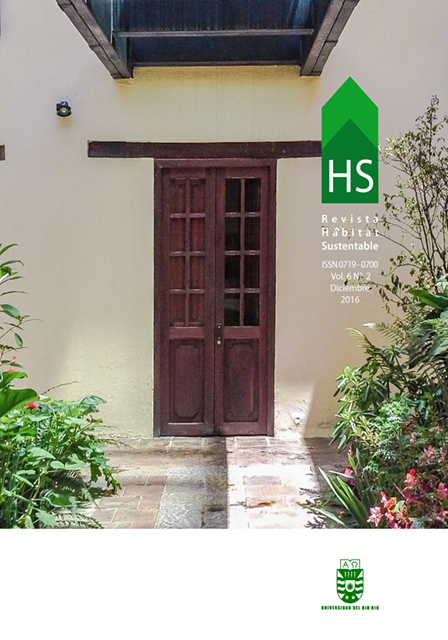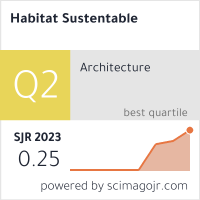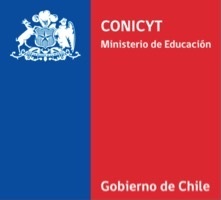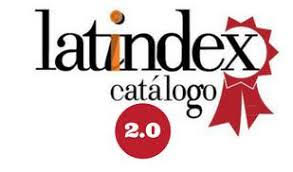An assessment of urban sustainability and living experience in public housing in cuenca, Ecuador.
Keywords:
urban sustainability assessment., public housing, housing policies, urban planning, urban sustainability assessmentAbstract
This article contributes to the debate on public housing policies in Ecuador through an evaluation of urban sustainability and living experience in public housing projects in Cuenca (Ecuador). To this end, the projects built from 1970 to 2014 were identified and three were chosen that correspond to different urban fabrics and are located in various areas of the city and promoted by dissimilar public entities. To evaluate sustainability, assessment models were used to demonstrate that the three projects are poorly rated and that those located on the city limits are rated even lower. In order to assess living experience, surveys were conducted to identify differences in the ways of inhabiting the immediate surroundings and the city. The results indicate that projects disconnected from urban centers generate a series of unsatisfactory effects for life in society. In light of the results, public housing policies must be rethought with a view to overcoming their role as clientelism tools whose only purpose is to compensate the housing deficit in quantitative terms, in order to transform them into planning tools capable of building sustainable cities.
Downloads
References
ACOSTA, María Elena. Políticas de Vivienda en Ecuador desde la década de los setenta, análisis, balance y aprendizajes. Quito: FLACSO, 2009.
AGUILAR, Luis. Política Pública. México-DF: Siglo XXI, 2010.
BARBA, Carlos y COHEN, Néstor (coord.). Perspectivas críticas sobre la Cohesión Social. Desigualdad y tentativas fallidas de integración social en América Latina. Buenos Aires: CLACSO, 2011.
CARRIÓN, Fernando. El problema de la vivienda en el Ecuador. Diario Hoy., 2003, noviembre. [Consultado 10 enero 2016] Disponible en: http://www.flacso.org.ec/docs/provivieec.pdf.
CABRERA, Natasha; ORELLANA, Daniel; HERMIDA, M. Augusta y OSORIO, Pablo. Evaluando la sustentabilidad de la densificación urbana. Indicadores para el caso de Cuenca (Ecuador). Bitácora Urbano Territorial, 2015, vol. 25, n° 2, pp. 21-34.
DÁVILA, Heisda y CUENIN, Fernando. El Programa Integral de Mejoramiento de Barrios Quito. En: ROJAS, Eduardo (ed.) Construir ciudades. Mejoramiento de barrios y calidad de vida urbana. Washington: BID, 2009, pp. 241-252.
DUHAU, Emilio y GIGLIA, Ángela. Las reglas del desorden: habitar la metrópoli. México Distrito Federal: Editorial Siglo XXI, Universidad Autónoma Metropolitana, Unidad Azcapotzalco, 2008.
HERMIDA, M. Augusta; HERMIDA, Carla; CABRERA, Natasha y CALLE, Christian. La densidad urbana como variable de análisis de la ciudad. El caso de Cuenca-Ecuador. Revista EURE, 2015a, vol. 41, nº 124, pp. 25-44.
HERMIDA, M. Augusta; ORELLANA, Daniel; CABRERA, Natasha; OSORIO, Pablo y CALLE, Christian. La ciudad es esto. Medición y representación espacial para ciudades compactas y sustentables. Cuenca: Universidad de Cuenca, 2015b.
I. CONSEJO CANTONAL DE CUENCA. Ordenanza Municipal #153. Cuenca: I. Municipalidad de Cuenca, 2001.
JABAREEN, Yosef. Sustainable Urban Forms: Their Typologies, Models and Concepts. Journal of Planning Education and Research, 2006, nº 26, pp. 38-52.
NIETO, María. El programa Quiero mi Barrio, Chile. Santiago: Ministerio de Vivienda y Urbanismo de Chile, 2010.
OPENSHAW, Stan. The modifiable areal unit problem. Kent: Geo Books, 1981.
PRADILLA, Emilio. El problema de la vivienda en América Latina. 1ª ed. Quito: Centro de Investigaciones CIUDAD, 1983.
ROJAS, Eduardo y FRETES, Vicente. Construir ciudadanía para una mejor calidad de vida. En: ROJAS, Eduardo (ed.) Construir ciudades. Mejoramiento de barrios y calidad de vida urbana. Washington: BID, 2009.
RUEDA, Salvador (ed.). Plan Espacial de Indicadores de Sustentabilidad Ambiental de la Actividad Urbanística de Sevilla. Barcelona: Agencia de Ecología Urbana de Barcelona, 2008.
Downloads
Published
How to Cite
Issue
Section
License
The content of articles which are published in each edition of Habitat Sustentable, is the exclusive responsibility of the author(s) and does not necessarily represent the thinking or compromise the opinion of University of the Bio-Bio.
The author(s) conserve their copyright and guarantee to the journal, the right of first publication of their work. This will simultaneously be subject to the Creative Commons Recognition License CC BY-SA, which allows others to share-copy, transform or create new materials from this work for non-commercial purposes, as long as they recognize authorship and the first publication in this journal, and its new creations are under a license with the same terms.











 Scientific Information Program/Concurso Fondos de Publicación de Revistas Científicas 2018/ Proyecto Mejoramiento de Visibilidad de Revistas UBB (Código:FP180007).
Scientific Information Program/Concurso Fondos de Publicación de Revistas Científicas 2018/ Proyecto Mejoramiento de Visibilidad de Revistas UBB (Código:FP180007).





